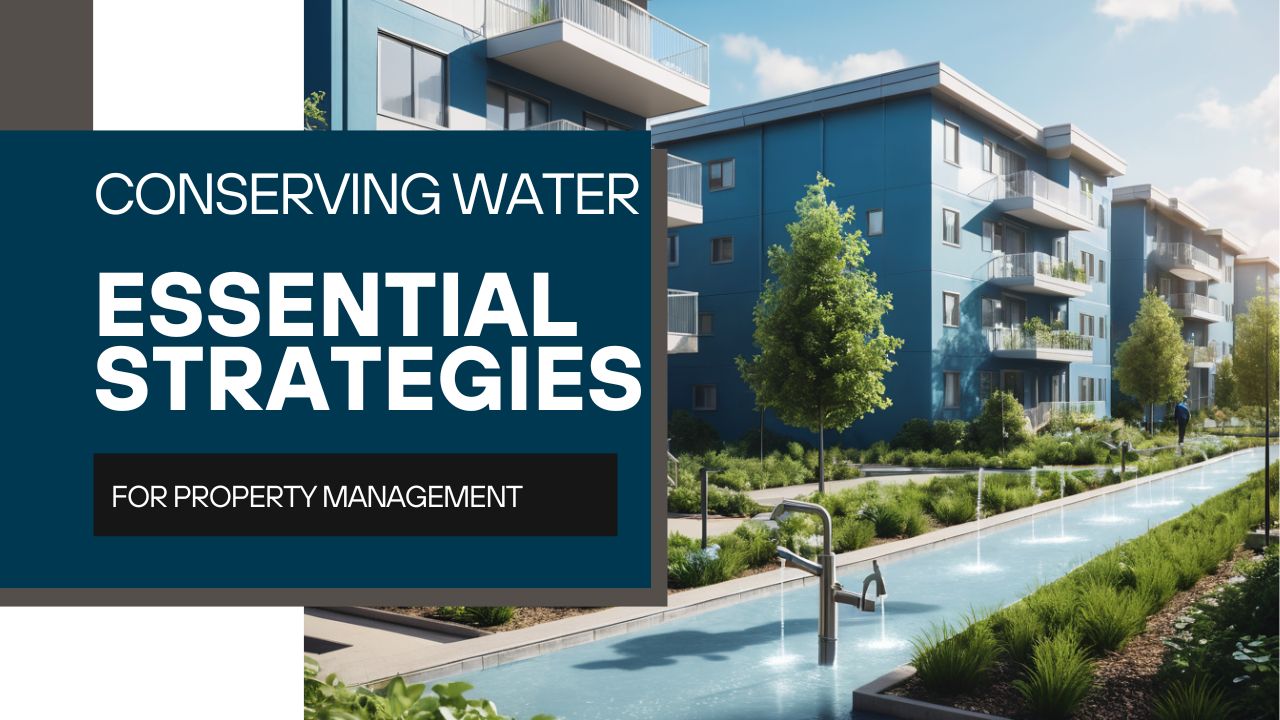Exercitation ullamco laboris nis aliquip sed conseqrure dolorn repreh deris ptate velit ecepteur duis.
Implementing Water Conservation Practices for Sustainable Properties
-
Vestio Capital > Education > Multifamily Apartments Investing Education > Implementing Water Conservation Practices for Sustainable Properties

As sustainability becomes increasingly important in property management and construction, water conservation has emerged as a critical area of focus. With the rising cost of water and growing concerns about resource scarcity, it’s essential for property owners and managers to adopt water-saving strategies that not only lower utility bills but also contribute to environmental preservation. This article explores key water conservation practices, including installing low-flow fixtures, implementing rainwater harvesting systems, and using sustainable landscaping to reduce water consumption in residential and commercial properties.
The Importance of Water Conservation
Water conservation is crucial for a variety of reasons:
- Environmental Impact: Reducing water usage helps conserve natural water sources and lessens the strain on local water supplies. This is especially important in areas prone to drought or water shortages.
- Cost Savings: Water-efficient systems and practices can significantly lower utility bills for property owners and tenants. As water costs continue to rise, implementing conservation measures can provide long-term financial benefits.
- Sustainable Living: Environmentally conscious tenants are more likely to choose properties that prioritize sustainability. By focusing on water conservation, property owners can appeal to eco-friendly residents.
Low-Flow Fixtures: Reducing Water Consumption
Low-flow fixtures are one of the most effective ways to reduce water consumption in properties. These fixtures are designed to use less water while maintaining performance, making them an essential part of any water conservation strategy.
- Low-Flow Toilets
Traditional toilets can use up to 7 gallons of water per flush, while low-flow models use as little as 1.6 gallons. This substantial reduction in water usage can have a significant impact on a property’s overall water consumption. Dual-flush toilets, which offer different flush options depending on waste type, are another popular water-saving solution. - Low-Flow Showerheads
Showers account for a large portion of residential water use. Low-flow showerheads reduce water flow without sacrificing pressure, allowing residents to enjoy a comfortable shower experience while using up to 50% less water. - Faucet Aerators
Faucet aerators mix air with water, reducing the amount of water flowing from the tap while maintaining adequate water pressure. These inexpensive devices can be easily installed on sinks throughout the property, contributing to overall water savings.
Rainwater Harvesting Systems: Harnessing Natural Resources
Rainwater harvesting is an innovative approach to water conservation that involves capturing and storing rainwater for later use. This system can significantly reduce the demand for municipal water and lower water bills.
- How It Works
Rainwater is collected from rooftops, filtered to remove debris, and stored in tanks or barrels. The harvested water can then be used for various non-potable purposes, such as landscaping, irrigation, toilet flushing, or even laundry. - Benefits
Rainwater harvesting reduces reliance on traditional water sources and helps mitigate the impact of water restrictions during periods of drought. It is an environmentally friendly way to reduce stormwater runoff, which can otherwise contribute to soil erosion and water pollution. - Implementation
Installing a rainwater harvesting system requires proper planning and design to ensure maximum efficiency. Systems can range from simple rain barrels for small properties to more complex setups with large storage tanks for larger buildings or communities. When paired with low-flow fixtures, rainwater harvesting can make a significant dent in overall water consumption.
Sustainable Landscaping: Water-Efficient Outdoor Spaces
Sustainable landscaping practices are designed to reduce water usage while maintaining aesthetically pleasing outdoor spaces. By incorporating drought-resistant plants, efficient irrigation systems, and smart landscaping techniques, property owners can achieve a beautiful, eco-friendly landscape that requires minimal water.
- Xeriscaping
Xeriscaping is a landscaping method that focuses on selecting plants that require little to no irrigation. Native and drought-tolerant plants are ideal for xeriscaping, as they are adapted to the local climate and can thrive with minimal water. This reduces the need for irrigation and helps conserve water. - Efficient Irrigation Systems
Traditional irrigation systems can waste a significant amount of water due to evaporation, runoff, or overwatering. Switching to efficient irrigation methods, such as drip irrigation or soaker hoses, ensures that water is delivered directly to the roots of plants, minimizing waste. Smart irrigation systems, which use weather data to adjust watering schedules, can further optimize water use. - Mulching and Soil Management
Adding mulch to garden beds helps retain soil moisture, reducing the need for frequent watering. In addition, proper soil management practices, such as aeration and the use of organic compost, can improve water absorption and reduce runoff.
Conclusion
Water conservation is an essential aspect of sustainable property management, offering both environmental and financial benefits. By implementing low-flow fixtures, rainwater harvesting systems, and sustainable landscaping practices, property owners can significantly reduce water usage, lower utility costs, and create eco-friendly living spaces that appeal to environmentally conscious tenants. As the need for sustainability grows, adopting these water-saving strategies will help ensure long-term success in property management while contributing to the broader effort to conserve natural resources.
Residential Complexes, with their large-scale operations, stand to gain substantial savings and efficiency by adopting these water conservation measures across multiple units.

